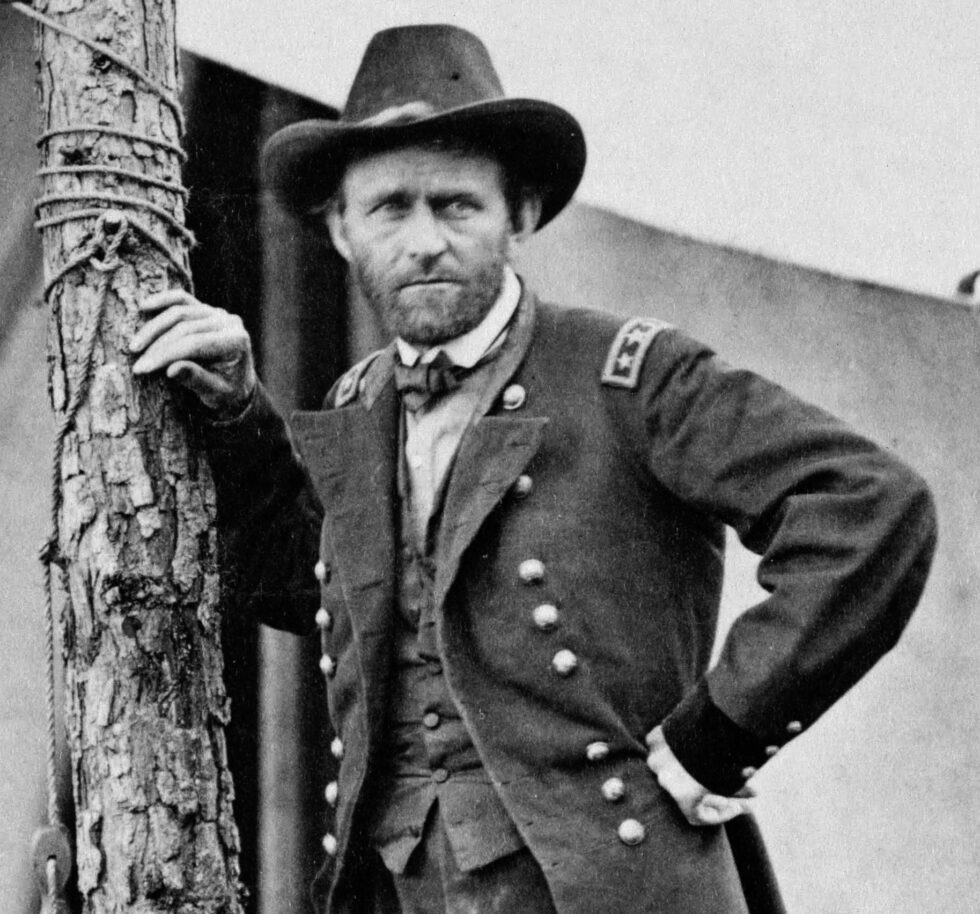The first few years of the Civil War did not go well for the Union. At best, the war until 1863 performance could be considered a stalemate. At worst, the Confederates were establishing themselves as a force to be reckoned with. President Abraham Lincoln was looking down the barrel at a re-election campaign he never thought he would win and a country that might permanently be split in two.

Lincoln had chosen a number of generals to command the Union Army, but none of them could make any headway against the rebellion. Gen. George McClellan was an organized leader but overly cautious and allowed the Confederates to escape destruction on a few occasions. He was replaced by Gen. Henry Halleck, who was even more ineffective.
Ulysses S. Grant’s Overland Campaign
One of the few bright spots was a commander in the West, a general who had defeated the Confederates at Shiloh, Chattanooga, and gave the Union control of the Mississippi River when he captured Vicksburg, Mississippi. Gen. Ulysses S. Grant was the aggressive, victorious general Lincoln needed, so the president promoted Grant to Lieutenant General, previously held only by George Washington, and put him in command of all Union forces.
Arriving in Washington in 1864, Grant’s new strategy was one that would hit the Confederates on five coordinated fronts, preventing the rebels from moving men and materiel to support any single Union offensive.
Gen. William T. Sherman would destroy the rebel Army of Tennessee in the West and capture Atlanta’s industrial and transportation center. Maj. Gen. Nathaniel Banks would attack Mobile Bay in the Gulf of Mexico while Union forces under Maj. Gen. Franz Siegel captured food supplies and transportation hubs in the Shenandoah Valley.

The Overland Campaign Was the Beginning of the End of Lee’s Army
Grant and Gen. George G. Meade would attack the Army of Northern Virginia under the command of Confederate Gen. Robert E. Lee with more than 100,000 Union troops. What would come to be known as The Overland Campaign was the beginning of the end of Lee’s army and the Confederate States of America along with it.
Despite how the campaign ended, it didn’t start off well for the Union advance. In the first battle, a three-day fight called the Battle of the Wilderness, the rebels inflicted heavy casualties on the Union forces. Grant was forced to disengage, but a retreat was out of the question. He moved his army between Lee’s and the Confederate capital of Richmond.
The move forced Lee to race to Spotsylvania Court House to prevent his army from being flanked. Another inconclusive battle raged there for nearly 12 days, but this time it was the Union who inflicted heavy casualties, losses the rebels could not replace. After Spotsylvania, Grant attempted to outflank Lee again at North Anna and then again at Cold Harbor.

Fighting at Cold Harbor raged just 10 miles from the Confederate capital. Both sides were reinforced there after suffering massive casualties until this point. Although it started off well enough for the Union, the entrenched positions built over the next 13 days meant little would be gained for either side, but the Union made repeated frontal assaults against the enemy, making Cold Harbor one of the bloodiest battles of the war, and of American military history.
Grant then laid siege to Petersburg, a critical supply line for Lee’s army and for Richmond, so the rebels defended it vigorously, resulting in a nine-month siege of trench warfare. This forced Lee to extend his army to defend Petersburg while the rest of the five-point plan came to fruition.

The Seizing the Shenandoah Valley
Gen. Philip Sheridan began seizing the Shenandoah Valley in May 1864. Sherman began pushing the rebels out of Tennessee, and by the end of August, both Atlanta and Mobile Bay were under Union control. As 1864 turned to 1865, Sherman was burning the South on his March to the Sea, the Confederate Army of Tennessee was destroyed at Nashville by the undefeated Union Gen. George Henry Thomas, and President Lincoln was re-elected.
The ongoing Siege of Petersburg had forced Lee’s army to extend its lines by 35 miles. Lee was trapped, losing troops to desertion and starvation. On April 1, 1865, Grant began attacking the Petersburg lines, which collapsed against the offensive. Two days later, Union troops entered Richmond.
In a last-ditch effort to save his army, Lee tried to link up with Gen. Joseph E. Johnston, but Sheridan cut them off and captured their supplies. With no hope of reinforcements and his men starving, Lee sent Grant a letter to discuss the terms of his surrender, effectively ending the Civil War.
Read About Other Battlefield Chronicles
If you enjoyed learning about the Overland Campaign, we invite you to read about other battlefield chronicles on our blog. You will also find military book reviews, veterans’ service reflections, famous military units and more on the TogetherWeServed.com blog. If you are a veteran, find your military buddies, view historic boot camp photos, build a printable military service plaque, and more on TogetherWeServed.com today.

What a terrible time for our country!
However, I believe we the strongest, most free country in the world.
People have always wanted to come to this country..Where will we be 10 years from now with so much chaos around the world?
Hopefully, still the free with our democracy working for everyone.
God bless America!